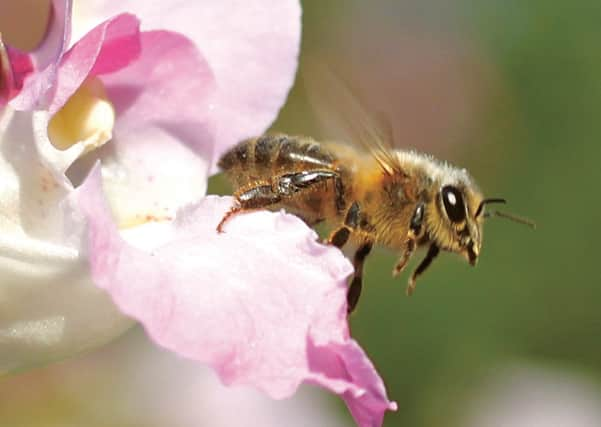Derry and Strabane District Council to nurture local bee population by curtailing grass-cutting at some greenways and parks


For generations monks, and others, sought the co-operation of bees to produce honey for food, drink and medicine. Indeed humble Apis mellifera was such an important part of life that bee keeping had its own dedicated section of Brehon Law known as the bechbretha (bee-judgements).
Fifteen hundred years on and Derry City and Strabane District Council is aiming to boost the local bee population through an innovative new grass management system.
Advertisement
Hide AdAdvertisement
Hide AdThe ‘Don’t Mow, Let it Grow’ initiative is part of the Council’s Pollinator Plan and will see temporarily reduced cutting on selected sections of parks and greenways.
The strategy aims to create grasslands rich in wild flowers to create a more favourable habitat for bees in the summer months. It forms part of the Council’s pioneering Green Infrastructure Plan and Biodiversity Officer, Christine Doherty, said it could play a key role in fighting the extinction of many species of bees on the island of Ireland.
“A third of the bee population in Ireland is potentially at risk of extinction and that poses a huge problem for us as we rely on bees to pollinate the majority of our crops and wildflowers,” she noted.
“With a reduction in the bee population we’ll have less variety of foods and costs will increase.
Advertisement
Hide AdAdvertisement
Hide Ad“This trial in grass management will initially be piloted at ten of our key parks meaning that we won’t be cutting grass as frequently and we will use a special type of machinery that cuts and lifts the grass in late August or early September.
“This action will create grasslands rich in native wild flowers thereby increasing the amount of food available for bees and providing them with shelter hopefully leading to an increase in the bee population which is good for our economy and our environment.
“The change will also prevent 1.6 tonnes of carbon dioxide emissions from the reduction in grass cutting which is a positive step in mitigating against the impacts of climate change.”
The intiative is not taking place in isolation, however. Other local authorities and groups around Ireland are also participating in what is very much a national effort, and with good reason.
Advertisement
Hide AdAdvertisement
Hide AdIt was Albert Einstein, after all, who predicted that if honey bees disappeared humans would be finished within four years.
John Quinn, who is Derry City and Strabane District Council’s Streetscape Manager, explained how the system will be implemented.
“Council will install signage at ten of its key green spaces, to trial a change in grass management in sections of these sites for pollinators.
“This change in grassland management will take place initially on over 3 per cent of our estate (26 hectares in toral).The majority of grasslands are cut too frequently, with grass cuttings left behind, which increases soil nutrient levels and stimulates vigorous grasses.
Advertisement
Hide AdAdvertisement
Hide Ad“This cycle increases on-going management costs and the need for additional grass cutting,” Mr. Quinn explained.
By changing the grass management, this will create grasslands rich in native wild flowers, which contribute towards the conservation of the UK’s biodiversity and help deliver the All-Ireland Pollinator Plan.
It will support DC&SDC in its effort to deliver its statutory biodiversity duty, improve the biodiversity value of local grasslands, enhances ecological connectivity and contribute towards biodiversity net gain.
It will increase the number and diversity of flowering plants, provide a more sustainable service under the current conditions and reduces the Council’s carbon footprint.